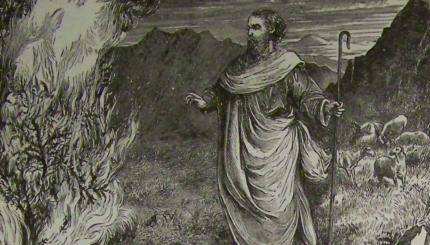As Parashat Va’et’hanan opens, Moses is pleading for forgiveness, in order to be permitted to enter the promised land along with the rest of the Israelites. Moses’ request is unconditionally denied, but he is given a counter offer: he can look from a hilltop at the land he will never enter. Moses becomes a distant surveyor of the people’s relationship with God in the promised land, able to see but not experience their new reality.
At the end of the Torah portion, after God reminds Moses that he won’t get to enter into the promised land, and reminds Israelites of their promises to God, comes another reminder:
“For you are a people consecrated to the Lord your God: of all the peoples on Earth, the lord your God chose you to be his treasured people.”
In part, this is a beautiful sentiment; but as Mordecai Kaplan says, “chosenness always means the superiority of the chosen over the rejected, from the viewpoint of the chooser.” When taken into practice, it has the potential to elevate us above the rest, deems our religion and practices more meaningful. I worry that it creates this binary of chosen versus the rest; of “us” versus “them.” There is merit in being connected to a community, but also hazards in disconnecting from (and worse, looking down on) the larger world.
So how are we to accept that our texts, over and over again, assert this idea of chosenness, without falling into the trap of collective superiority?
Kaplan rejects this reading of chosenness. Instead, he argues that the Jewish path is one among many ways to reach the same humanistic values that lay at the core of many religions. We may have a unique bond with God, but that doesn’t mean we have the only bond.
I think Va’et’hanan gives us an instruction manual for how to act in relationships- how not to fall into the trap of creating separateness with chosenness. I like to think about the relationship between God and the Israelites as a sort of model for deep, committed relationships between human beings… not just those like us, but all humans.
“If you search for the Lord your God, you will find him, seek him with all your heart and all your soul.”
We will find God only when we are open to the process of learning about God, and only if we seek with all our heart and all our soul. The word used for seeking is tidreshnu, which shares a root with the word drash, the term used to describe searching for layers of meaning in the Torah. Our search in this relationship is not surface level. We must delve deeper. When entering a relationship, this teaches us not only to have empathy, but also to go deeper, seeing others as they see themselves. To search the many layers that contribute to a person’s being, to enter into relationships with an open heart.
Remember Moses at the beginning of this portion? Sitting upon the hill, looking down at the promised land? Moses becomes an observer. When we enter into relationships with minimal awareness or concern for one another, I worry we may become that man in the distance, trying to understand but not able to fully experience.
Being an outsider is better than not being a part of the situation at all. But when we become outsiders looking in, we only glimpse a surface level understanding. More ideal is to enter into relationships that challenge us, that push us to trust others unlike ourselves, to experience life at its fullest. Only here can we experience all the diversity and wonders that the world has to offer. This informs my work here in the South, and my commitment to community engagement.
I want to close with a call to action of sorts- a poem that reminds me there is no better time to change the way we interact with people who are not like us than the present:
Before the gate has been closed,
before the last question is posed,
before I am transposed.
Before the weeds fill the gardens,
before there are no pardons,
before the concrete hardens.
Before all the flute-holes are covered,
before things are locked in the cupboard,
before the rules are discovered.
Before the conclusion is planned,
before God closes his hand,
before we have nowhere to stand.
-Yehuda Amichai
The Jewish world is full of debates. Get the latest in MyJewishLearning’s weekly blogs newsletter.
Torah
Pronunced: TORE-uh, Origin: Hebrew, the Five Books of Moses.


